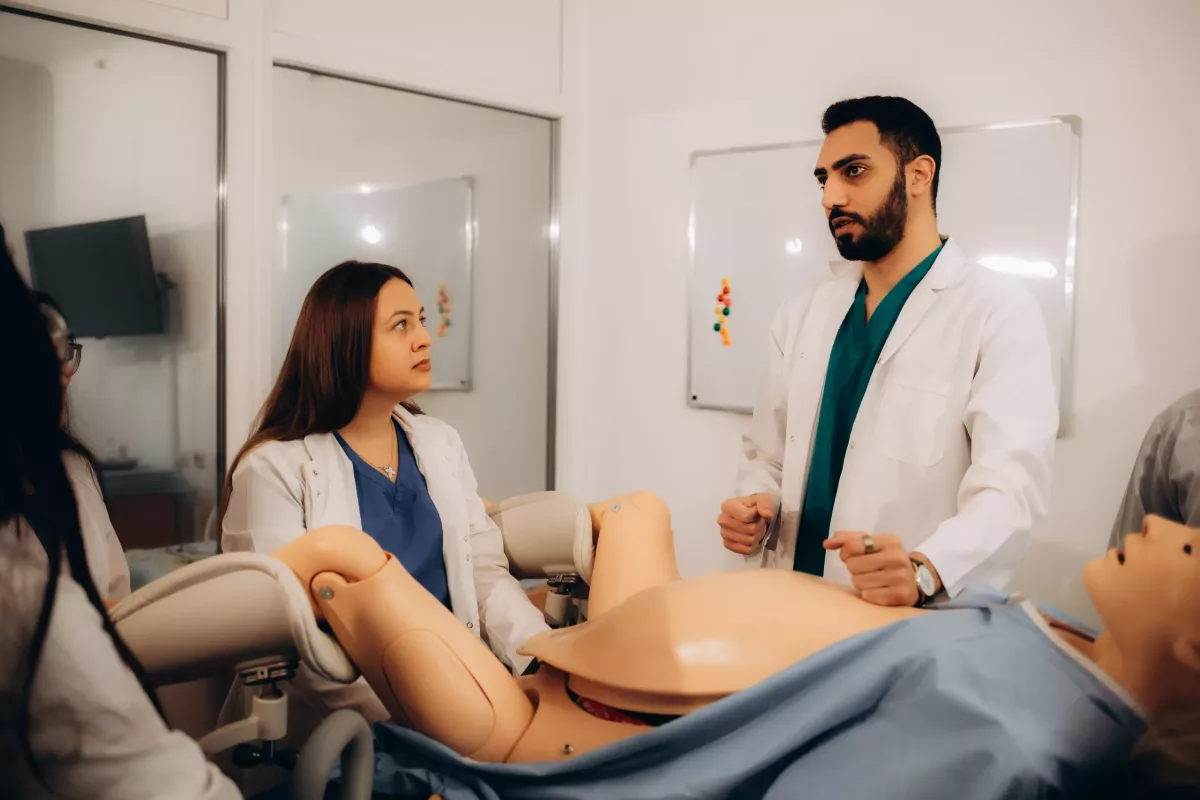An organ that stores urine (pee) is called the bladder. It is like a storage tank, and when the bladder is full, you urinate. However, if you experience this condition, the bladder does not fully empty when you urinate. This condition is called urinary retention and often happens due to blockages, medicines, or nerve problems.
Urine is made up of waste substances that the kidneys filter from the bloodstream. Thereafter, the pee stays in the bladder until you empty it. Furthermore, the urine leaves the body through the urethra (a tube that connects the bladder with the outside of the body).
Types of Urinary Retention
People usually experience acute (sudden) or chronic (long-term) urinary retention. While the acute form of the condition usually occurs quickly and can be severe, the chronic form causes symptoms gradually.
Sometimes, acute urinary retention is an emergency, which means you should see a doctor immediately. The chronic type of condition mostly affects males, especially those over 60 years old.
Generally, there is a 10% chance of developing urinary retention over age 70 and up to 30% over 80 in men. Females may also develop this condition, but it is less common.
Symptoms
The symptoms are often different among people who develop this condition. It depends on the type and severity of the condition, age, existing health problems, and other factors. Check below some examples:
Acute Urinary Retention Symptoms
Commonly, people who develop this type of condition experience symptoms suddenly, which can be severe. The most common symptom is urinating in small amounts despite a full bladder or inability to pee at all. However, if you develop severe symptoms (such as abdominal pain), you should go to the nearest emergency room (ER) or call 911 in the U.S.
Chronic Urinary Retention Symptoms
In such cases, the symptoms occur gradually, and people often experience different symptoms. Examples include:
- Difficulty starting to urinate
- Slow, weak, or uncontrollable urine stream
- Sudden urge to urinate right after urinating
- A feeling like you need to pee every time
- Leaking urine
- Nocturia (several urges to urinate during nighttime)
If you experience any of the symptoms listed above or any others that cause concerns, contact your doctor right away.
Causes
This condition may occur due to multiple reasons. Check some examples below:
Blockages
Some people develop this condition when something blocks the urine flow. Moreover, blockages (also known as obstructions) are the most common causes of this urinary condition. Check below some factors that may cause blockages:
- Enlarged prostate – In such cases, a blockage occurs due to the enlargement of the prostate gland that puts pressure on the urethra.
- Bladder outlet obstruction – These blockages affect the neck of the bladder (the area before the urine leaves the body).
- Ureteral obstruction – There are some health conditions that may also cause blockages in the urethra. These include ureteral stones, blood clots, or tumors.
- Cystocele – People with this condition may notice that the bladder sags into the vagina.
- Rectocele – In such cases, the rectum sags into the vagina.
- Urethral stricture – This condition causes narrowing of the urethra due to scar tissue.
Medicines
There are some medications that may cause urinary retention, especially if they are used for long periods. For example, antihistamines, antispasmodics, opiates, and tricyclic antidepressants. Check below for other medications that may cause bladder control adverse reactions:
- Antihypertensives
- Antipsychotics
- Muscle relaxants
Nerve Problems
Usually, urinating occurs when the brain tells the bladder muscle to tighten to squeeze the urine out. Therefore, it also tells the sphincter muscle around the urethra to relax, which allows the urine to flow outside the body. When a person experiences problems with nerves that help send signals between the brain and bladder, he/she may develop urinary retention. Check below some factors that may cause nerve problems:
- Stroke
- Diabetes
- Multiple sclerosis (MS)
- Vaginal childbirth
- Pelvic surgery
- Trauma or injury to the spine or pelvic area
- Spinal cord tumors
- A herniated disk
An increased risk of developing nerve problems may occur if you have had a catheter.
Infections or Inflammation
These health problems may affect how the urine flows through the urethra. Check below some infections and swelling that may lead to urinary retention:
- Prostatitis – This is a condition that causes inflammation in the prostate gland. As a result, it puts pressure on the urethra, which may block the urine flow.
- Urinary tract infections (UTIs) – These infections may cause the urethra to swell or weakness in the bladder.
- Sexually transmitted infections (STIs) – In such cases, the infection spreads through sexual contact and may also cause urinary retention.
Surgery
Sometimes people may develop this condition due to certain types of surgery. These include joint replacement surgery (such as hip replacement), spinal surgery, and others. In some cases, people may develop urinary retention after general anesthesia, but it is often temporary.
Risk Factors
Physicians have identified some factors that could increase your risk of developing urinary retention. These include:
- Age – This condition often occurs in older people (over 60 years old).
- Sex – Males are more prone to develop urinary retention compared to females.
- Prostate problems – If you develop benign prostatic hyperplasia (BPH), your risk of developing urinary retention increases significantly.
- Some medicines – For example, antihistamines, tricyclic antidepressants, and others.
- Neurological health conditions – If you develop multiple sclerosis or diabetes, your risk of urinary retention will increase.
- Surgery – Sometimes, people may develop urinary retention after general anesthesia or some types of surgery.
- Pelvic organ prolapse
- Urinary tract infections (UTIs) or sexually transmitted infections (STIs)
- Kidney stones
- Tumors in the urinary system
What Are The Potential Complications of Urinary Retention?
If this condition is left undiagnosed or untreated, it may lead to some complications. Check below some examples:
- UTIs – While urinary tract infections may cause urinary retention, you may develop UTIs if you already have urinary retention.
- Bladder damage – If you are not urinating for a long time, the urine may overstretch the bladder muscles and cause damage.
- Kidney damage – In some cases, a UTI may spread to the kidneys, causing them to become inflamed and swollen. As a result, it may lead to kidney damage or disease.
- Leaking pee – It often happens when the bladder does not fully drain.
- Bladder stones – Urine contains certain substances that may build up and form stones.
- Urinary incontinence
- Urosepsis
- Bladder rupture
- Recurrent urinary retention
How to Prevent Urinary Retention?
While it is not possible to prevent this condition, there are some tips that may help reduce the risk of developing it. Examples include:
- Go to the bathroom as soon as you have the urge to urinate.
- If you notice changes in the urine (such as cloudy urine, color changes, or others), you should inform your doctor as soon as possible.
- Adopt a healthy diet and drink plenty of water to prevent dehydration
- It is also recommended to perform physical exercises regularly to get or maintain a healthy weight
Diagnosis
Those who experience acute urinary retention should go to the nearest emergency room or call 911 in the U.S., especially if severe abdominal pain occurs. When you develop the chronic type of the condition, you should see a doctor. They often ask questions about the symptoms and how long they have been present, perform a physical examination, evaluate your medical history, and may order some tests (such as urinalysis) to check for infections.
Furthermore, doctors may perform additional tests to identify the exact cause of urinary retention. Check below some examples:
- Post-void residual urine tests (PVR) – This is a specific test used to measure how much urine is left in the bladder after urination.
- Cystoscopy – During this test, doctors use a thin and flexible tube with a lighted camera on the end to examine the bladder and urethra for abnormalities linked to the disease.
- Urodynamic testing – This test measures muscle and nerve function and pressure around the bladder.
- Prostate-specific antigen (PSA) – It is often performed to check for prostate cancer.
Treatment
Usually, doctors prescribe different treatments for people with urinary retention. It depends on the type and exact cause of the condition, overall health, age, and preferences. Check below some examples:
Acute Urinary Retention Treatment
People who develop this type of condition usually get treatment in the hospital. Physicians often use a catheter to drain the bladder, which helps lessen the symptoms. Thereafter, they will perform some tests to make the best treatment plan for you.
Chronic Urinary Retention Treatment
The most common treatments recommended for people with the chronic form of the condition are medicines, surgery, and nonsurgical options.
Medicines
The following medications are often recommended by doctors to treat the underlying cause of urinary retention. For example:
- Alpha-blockers and 5-alpha reductase inhibitors – These medications are used to treat an enlarged prostate gland and relax muscles around it.
- Antibiotics – This group of medications is recommended to treat bacterial infections.
Surgery
In some cases, physicians recommend the following procedures to treat the underlying cause of urinary retention. Examples include:
- Enlarged prostate – There are multiple surgeries that can treat an enlarged prostate gland. These include transurethral resection of the prostate (TURP), prostatic urethral lift, holmium laser enucleation of the prostate (HoLEP), and others.
- Urethral stricture – For example, urethroplasty.
- Cystocele or rectocele – In such cases, doctors recommend a pessary or surgery to lift the organs back to their normal position.
- Urinary tract stones – Physicians usually recommend a cystolitholapaxy to break stones and remove them from the bladder or urethra.
Check below some treatments that doctors recommend when less invasive procedures do not work:
- Prostatectomy (the removal of the prostate gland)
- Spinal cord stimulation
- Bladder surgery
- Urinary reconstruction and diversion
Nonsurgical Treatments
The following options are usually recommended to lessen the symptoms. For example:
- Kegels or pelvic floor therapy – Physical therapy and Kegel exercises are used to strengthen the pelvic floor muscles.
- Vaginal pessary – This is a specific device used to support the bladder.
- Bladder control – Drinking liquids only at certain times may help improve this condition.
Frequently Asked Questions
How to reverse urinary retention?
Generally, multiple options may help reverse this condition. For example, medicines, self-catheterization, physical therapy, and surgery (sometimes).
What foods can help to cure urine retention?
Certain foods (including fruits, vegetables, and whole grains) may help prevent constipation, promote regular bowel movements, and reduce the pressure on the bladder. You should also drink plenty of water to prevent dehydration and constipation.
What foods should be avoided by people with urinary retention?
These include:
- Alcohol (such as beer, wine, and liquor)
- Acidic foods such as citrus fruits (including lemon, lime, orange, and grapefruit), tomatoes, and others.
- Artificial sweeteners
- Processed foods
- Sugary treats (including cookies, cakes, and candies)
- Spicy foods
- Coffee, tea, and some sodas
This article does not contain a complete list of foods that should be avoided. Ask your healthcare provider if you have additional questions.




